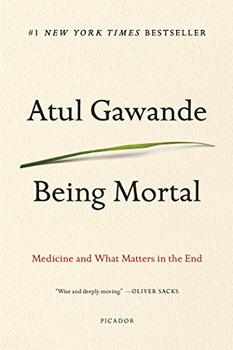We live at a time, in a country, where we don't need to face mortality the way people used to. We are bombarded with health, beauty, youth. Being old is no longer seen as something to respect, but to be managed. Cancer is a rude interruption to the stories we are being told. There is no grace in illness or aging or dying. We are allowing ourselves to be cut off from reality because we don't know there is beauty in it, just like there is in living. No one wants to have difficult conversations for fear of seeming hard or mean. Yet, that is exactly what is happening when the conversations are avoided or circumvented. People who wish to curtail or even stop treatment don't feel they have the authority to decide - yet, they do. My father, diagnosed with colon cancer, decided not to accept any medical intervention. It took a bit of convincing, but we all were privileged to watch him move through the staged and be a part of his life as he died gracefully, with laughter, love and palliative care. Should I enter the same journey, I will do the same. It means everything.



